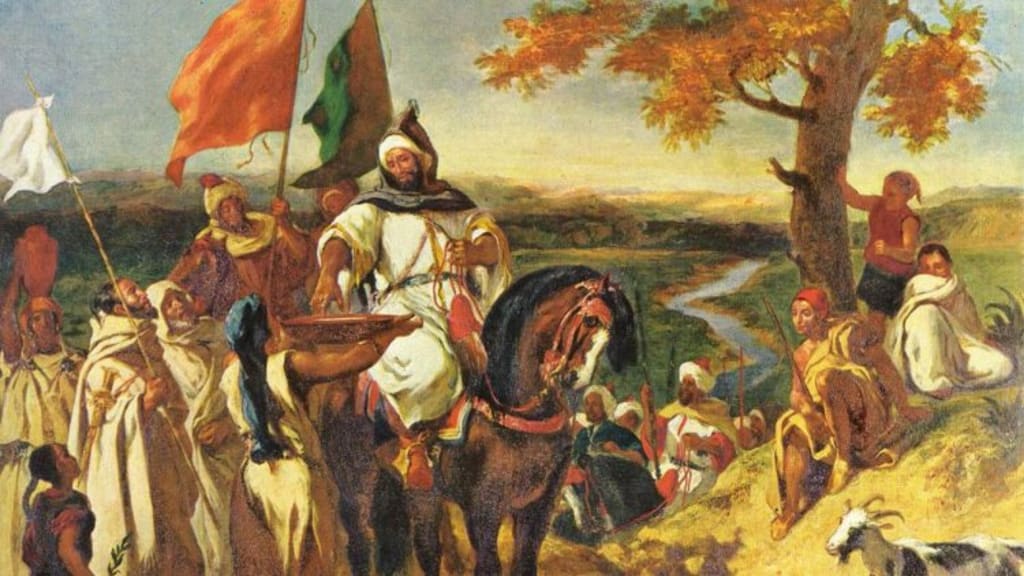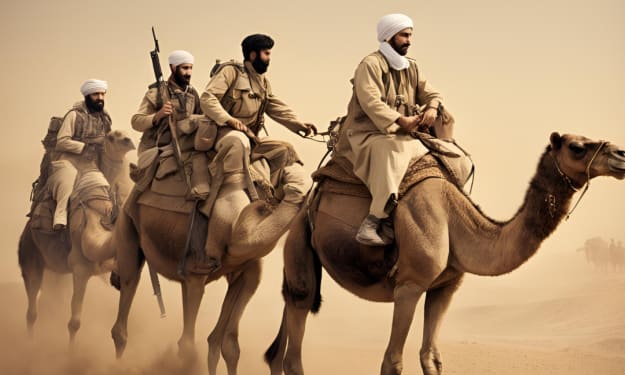Legends of the Maghreb: Unraveling the Tapestry of Morocco's History
From Ancient Kingdoms to Modern Marvels: A Journey through the History of Morocco

Once upon a time, nestled in the northwestern corner of Africa, there existed a land known as Morocco. Its history spans across thousands of years, filled with vibrant tales of conquests, cultural exchange, and the rise and fall of mighty kingdoms.
The earliest traces of human habitation in Morocco date back to the Paleolithic era, when hunter-gatherer communities roamed the land. As time passed, Berber tribes settled in the region and established their own kingdoms, leaving behind a legacy of rich traditions and a deep connection to the land.
In the 7th century, the Arab conquest swept across North Africa, introducing Islam to the region. The Arab armies, led by Umayyad general Uqba ibn Nafi, reached the shores of Morocco in the late 7th century. With the spread of Islam came a blending of cultures as Arabs and Berbers merged their traditions, creating a unique Moroccan identity that still endures today.
Centuries later, in the 11th century, Morocco witnessed the rise of the Almoravids, a Berber dynasty that united much of North Africa and parts of Spain. Under their rule, Morocco flourished as a center of learning, trade, and architecture. The Almoravids constructed magnificent structures such as the Koutoubia Mosque in Marrakech, showcasing their grandeur and influence.
Following the Almoravid era, the Almohads emerged in the 12th century. Led by the charismatic leader Abd al-Mu'min, they conquered much of the Maghreb and expanded their empire into Spain. Their rule left a significant impact on Moroccan architecture, with landmarks like the Hassan Tower in Rabat becoming iconic symbols of the era.
In the 15th century, the Marinid dynasty rose to power, bringing prosperity and stability to Morocco. Their capital, Fes, became a center of intellectual and artistic achievement, with renowned scholars flocking to the city's prestigious madrasas and the world-famous University of Al Quaraouiyine. The Marinids also left their mark on the landscape through the construction of stunning architectural marvels like the Bou Inania Madrasa.
During the Age of Exploration, Morocco found itself caught in the crosshairs of European powers. The Portuguese established a stronghold in the city of Ceuta in the early 15th century and sought to expand their influence further. However, the Moroccan resistance, led by the Saadi dynasty, successfully expelled the Portuguese and maintained their independence.
By the 17th century, the Alaouite dynasty had taken the reins of power in Morocco and remains the ruling family to this day. Under their leadership, Morocco experienced a period of stability and growth. The Alaouites consolidated the country's territories, strengthened diplomatic ties, and further developed its cultural heritage.
The 19th and early 20th centuries were marked by increasing European influence in Morocco. France and Spain established protectorates over the country, leading to social and political tensions. Moroccan resistance against foreign control culminated in the Rif War (1920-1926), led by the charismatic figure of Abd el-Krim. Although the Rif War ultimately ended in defeat, it ignited a spirit of nationalism that would shape Morocco's future struggle for independence.
In 1956, Morocco finally regained its independence, with Sultan Mohammed becoming the nation's first king. Since then, Morocco has undergone significant modernization and economic development. The country's rich history, diverse cultural heritage, and breathtaking landscapes have made it a popular destination for tourists from around the world.
Today, Morocco stands as a vibrant tapestry, weaving together ancient traditions and contemporary progress. Its bustling medinas, vibrant souks, and awe-inspiring architecture offer glimpses into its storied past, while its warm hospitality and unique blend of cultures captivate the hearts of all who visit this remarkable land. The history of Morocco continues to unfold, shaped by the hands of its people and the winds of change, leaving an indelible mark on the pages of time.
About the Creator
Enjoyed the story? Support the Creator.
Subscribe for free to receive all their stories in your feed. You could also pledge your support or give them a one-off tip, letting them know you appreciate their work.





Comments
There are no comments for this story
Be the first to respond and start the conversation.